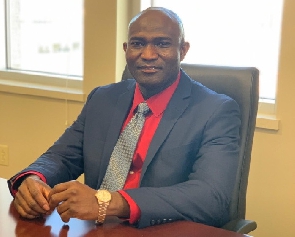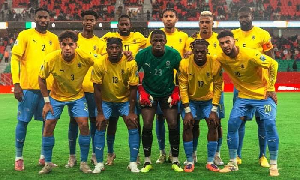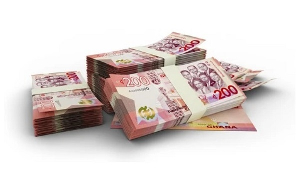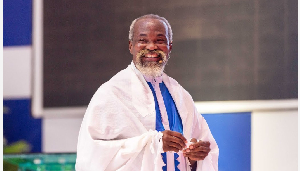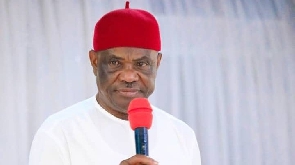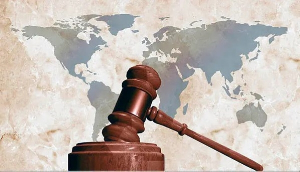A United States-based Ghanaian economist, Dr. Sa-ad Iddrisu, has advised the government to consider alternative solutions to solving Ghana’s economic plight rather than embarking on a solution that could rather cripple domestic banks and individual bondholders.
Dr. Iddrisu made this assertion while speaking on Adom TV's Saturday morning show programme via a zoom interview on January 21.
“The domestic debt exchange program can affect the financial position of some banks in the country, leading to their eventual collapse. The reason being that these banks rely on interests from their investments to fund their operations, such as payment of salaries and others. Thus, any long term deferments on interest payments on domestic bonds could spell doom for the financial sector.
“Again, including pensioners in the program could affect the livelihood of retirees as most of them invest their pension funds into government bonds and rely on interest payments,” Dr. Iddrisu said.
Dr. Iddrisu also added that “small business owners are also part of some individual bondholders and mostly rely on interest payments from government to also pay off their creditors and suppliers. Thus, government action at this moment of her debt program has an effect to either cripple or sustain and grow these businesses.
“I believe it’s time the government listens to calls from economic experts, religious groups and other civil society groups, to abandon her current debt exchange program and consider other options to fixing the country’s economic crisis. In view of this, I will propose three solutions to government”, Dr. Iddrisu said.
“Firstly, I will urged the government to embark on major cuts in her implicit liabilities. These implicit liabilities that the government has put on herself due to political pressures, are a major drains on the country’s finances. It’s obvious the free high school should have been suspended and tabled for review by now but the political pressures and an attempt to break the 8, makes the government not to hear wisdom. The over 900 Presidential staffers at the Jubilee House could be drastically reduced to 100 or less to save cost. More drastic measures could be applied to other sectors of government administration, to reduce her implicit liabilities,” he said.
He also questioned the government’s inability at fighting corruption, by making references to misappropriations and financial irregularities that were captured in the Auditor’s General annual reports.
“Tackle corruption seriously by paying attention to the Auditor General’s annual reports. For example, financial irregularities in the public accounts of ministries, departments and other agencies for the year 2018 was GH¢5.2 billion and in 2021, GH¢1.08 billion. Tax irregularities amounted to GH¢989.03 million in 2021 and cash irregularities amounted to GH¢388.93 million in 2019 and GH¢45.76 million in 2021.”
The last solution Dr. Iddrisu mentioned was for the government to center on debt swaps.
He explained that "debt swaps provide opportunities for debt-burdened countries to swap their debts for home based development. There are several debt swaps for countries to explore and see which they can qualify for. Examples of debt swaps include debt-for-nature, debt-for-environment, debt-for-equity, debt-for-development, debt-for-health, among others. Any of these debt swaps may not affect domestic bond holders and pensioners as the focus is mostly on bilateral, multilateral, and external privately held debts. Again, everything depends on the associated conditionalities that may come with the program.
“The advantage of debt swaps is that it brings a financial relief to the beneficiary country as the country doesn’t have to pay back interest on these debts in foreign currencies. Those payments are converted to local currencies and used to finance developmental projects in their countries. For example, if Ghana decides to consider the debt-to-nature-swap or debt-to-environment-swap through the Paris Club and qualifies, it can benefit the country in the fight against illegal mining (galamsey) and help in preserving our forest and water bodies.”
Dr. Iddrisu went further to mention some countries that have pursued debt swaps in the past.
“Chile pursued debt-for-equity-swap in 1985, Bolivia’s debt-for-nature-swap in 1987, Seychelles’s debt-for-climate in 2015, El Salvador’s debt-for-education, Egypt’s debt-for-water-sanitation, and currently Zambia’s debt-for-nature from World Wildlife Fund," he added.
General News of Saturday, 21 January 2023
Source: Richard Osei Yeboah, Contributor

